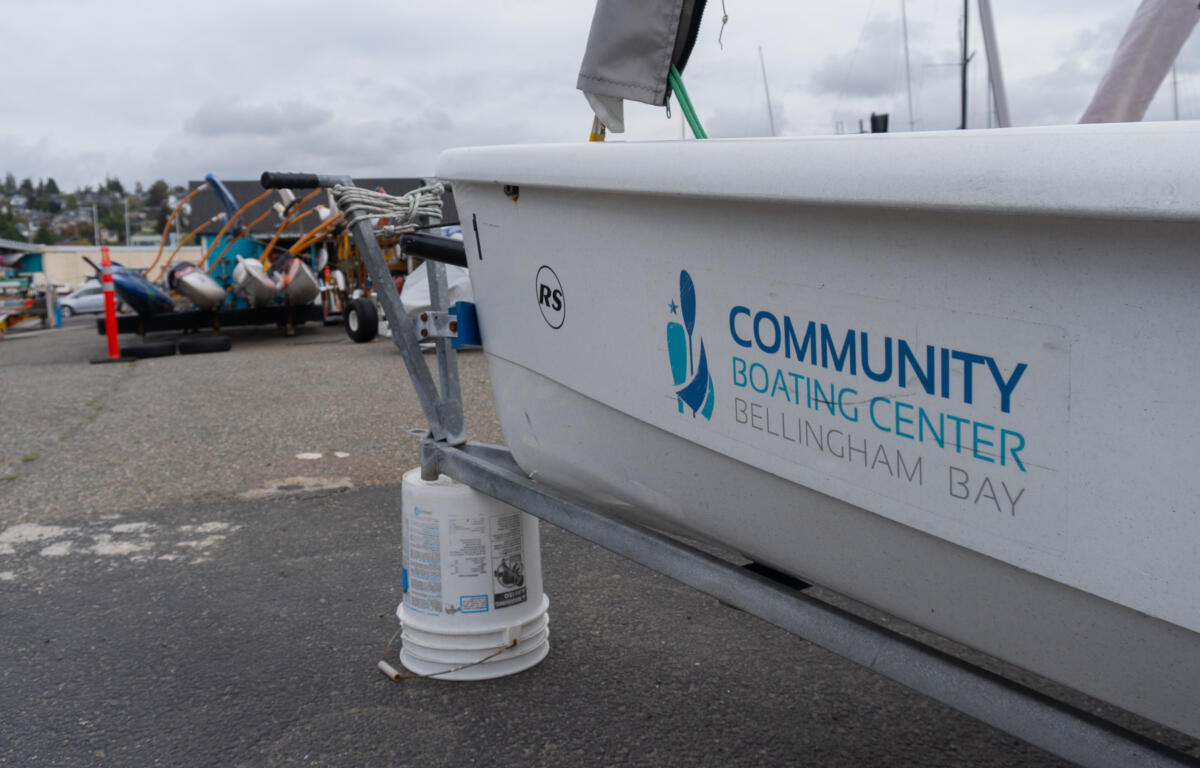Editor’s note: This story was updated on Aug. 20th at 1:20 p.m. to reflect updated information provided by the Community Boating Center.
BELLINGHAM, WA (MyBellinghamNow.com) – While access to open water is plentiful in Whatcom County, accessibility for those with mobility challenges are more limited. But for the last 19, the Community Boating Center (CBC) in Bellingham has helped fit that niche.
The CBC has recently made moves to expand their access at the waterfront, raising money to buy and install transfer lifts to install on the Port of Bellingham’s (POB) Small watercraft dock, a planned wheelchair-accessible dock to begin construction in fall 2026. According to Executive Director Bryan Rust, this dock is the latest in a series of efforts to build a community that supports everyone in it.
“A lot of people still believe, and I don’t blame them, that boating, sailing is for rich white people. It’s a yacht club sport. It’s held in the hands of the socio-economic elite. And we nonetheless find all that to be bullshit, and that being on the water is about as mindful and healthy as an activity can be,” Rust said.
Rust partnered the CBC with Daman Wandke, CEO of Wandke Accessibility consultants, to create opportunities for disabled people to access the water. That partnership began a few years ago and resulted in wheelchair-friendly sailboats added to the CBC’s arsenal as well as the POB’s new dock.
“So, yeah, I always loved being by the water, but I couldn’t find an accessible way on the water, and when I found sailing that was my way to do that,” Wandke said. Wandke has cerebral palsy, teaches Disability Studies at Western Washington University and championed the development of the Institute for Critical Disability Studies at the university. He is also an avid sailor.
The Australian-made Hansa sailboat is one of the only watercrafts of its type to allow space for wheelchairs to operate. According to Rust, that posed a problem when the CBC was looking to acquire an accessible boat.
Rust however also said Wandke has a network of boating enthusiasts throughout the country that can clue him in to finding these vessels.
“We were able to find a used boat on the West Coast with people who are willing to help us get it here and look after it. And so, in terms of just the barriers of acquiring a piece of equipment like this, you know, just having Daman’s friends in all these communities looking out for us, and it’s pretty cool to see,” Rust said.
“Whenever there’s good opportunities, we get an email saying there’s gonna be a boat for sale in, you know, Denver or something. But otherwise, these boats are made in [Australia] and just to put one in a shipping container and get it across the ocean [would] be $5000,” he said.
Before the CBC’s acquisition of accessible sailboats, Wandke had to fly to California to race and did so often throughout the years. Rust added that having a Hansa boat is a benefit for new sailors as the vessel can be easier to handle even if you are not in a wheelchair.
“When you learn to sail, there’s a lot going on, and [if] you can tame down the experience to control some of the variables, the students are just going to grow faster,” he said. Rust said the Hansa is a more stable boat that can make it easier to learn the ropes of sailing regardless of physical ability.
Rust and Wandke have managed to put together the funds to install critical transfer lifts on the POB’s dock and are in the process of tracking down more dinghies to add to their fleet.
“My dream is that we get five or six Hansa dinghies out on that race course, and that everybody is able to play the same game for that night,” Rust said. He envisions Tuesday night racing that anyone can participate in.
The CBC has made great strides to find funding for the goals of the community, partnering with the Port of Bellingham and the Max Higbee Center among others.
“I’m not here to tell you that operating a boating center is by any means inexpensive, like it’s a challenge, and not our nonprofit earns, you know, I would say 65% of the revenue that it takes to keep the lights on,” Rust said.
The CBC will install the wheelchair equipment soon, and their work to build bridges will only continue.



